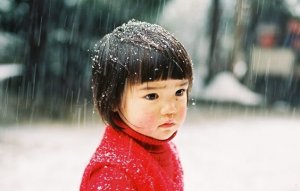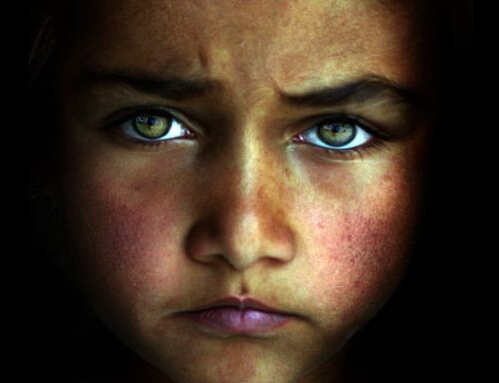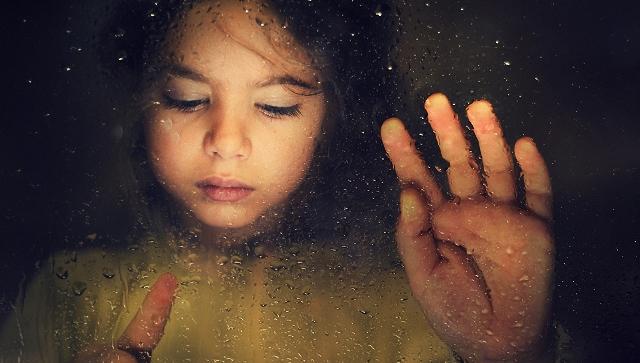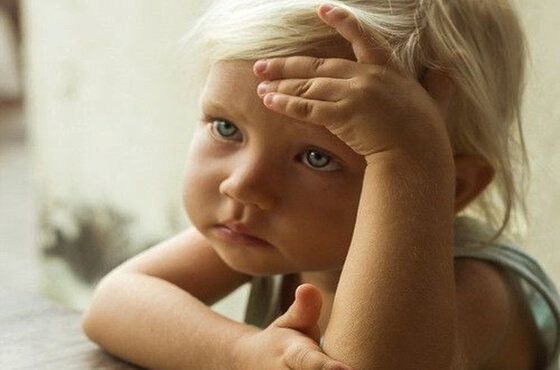Parents Dying - the Worst Thing that can Happen to a Child


Reviewed and approved by the psychologist Sergio De Dios González
“I lost my father when I was 8, almost 9, years old. I haven’t forgotten his deep and loving voice. They say that I look like him. But there’s one thing that makes us different – my father was an optimistic man.”
That’s how Rafael Narbona begins his testimony. He is a man who lost his father at a very young age. This is a situation which marked his life forever. It serves as proof that the worst thing that can happen to a child is for his parents to die.
During childhood, children establish a special bond with their parents. More often than not, these bonds are positive and unconditional. Thanks to their parents, children experience a first contact which will shape their future relationships.
With their support, with them as role models, these people will help them clear a path still unknown to them…. Remember, children are simply rookies in the game of life. So, if parents die at a young age, it can be a very hard blow which affects them in a profound way.
Why me? What would have happened if my parents hadn’t died? What would they have to say about my current life? Would they be proud of the decisions I’ve made?
These are questions which do not have a right or wrong answer. Yet, many times they accompany these individuals throughout the rest of their lives.
“In my mind, it was inconceivable to think that my father wouldn’t be able to walk around the park with me anymore.”
-Rafael Narbona-
The death of a parent leaves a permanent imprint – be it a scar or an open wound
Rafael Narbona still feels how hard it was for him to lose his father at the age of 8 to a heart attack. The incomprehension towards this unexpected event led him to ask himself the question “Why me?”. He sought out solitude during recess when he should have actually been enjoying life with the other children.
You may think, from the point of view of an adult, that children usually forget things quickly. Nevertheless, this is not the case for important life events. A child experiences with great intensity everything that happens to them. And the imprint each event leaves behind is very difficult to erase.
The sadness of that moment, seeing other children with their parents, and the rejection of this new, unknown, painful reality of death can be dragged along for the rest of the child’s life.

The death of a parent initiates a process of grief with successive phases which will last more or less depending on the person. It also depends on how much they are affected by the situation.
The initial anger, rage, and denial should be substituted afterwards by sadness and acceptance. In the case of Rafael Narbona, the anger and rage took quite some time to disappear. They were especially intense during his adolescence.
For a child, it is very difficult to understand that living beings eventually die and that this means they will never return.
Rebelling against authority figures and not respecting curfews sometimes is not indicative of a lack of education. Sometimes it indicates a terrible pain residing within an individual. It is a way of manifesting their unhappiness towards something which is still being rejected by their inner world.
Sadness transformed into peaceful nostalgia
Just like many children who lose a parent, Narbona transformed from a state of constant struggle against the world which manifested as rage. He turned into a professor, journalist, and writer, just like his father was.
In his pain, he idealized his father, to the point that he hit a turning point when he decided to follow in his footsteps. Nevertheless, the sadness remained. He underwent a healing process through which he saw his father as someone imperfect, but real.

When a parent dies, a child tends to cling to their idealized image as they rebel against a world that ripped their loved one away. Sometimes they end up following in their footsteps due to a deep-rooted desire.
Not a desire to replace them, but to feel closer to that loved individual. However, there is still a deep sadness and a rancor towards the world that one day took their family member.
A family should never disguise their sadness. It would be positive to include the children in this process of grief.
Children suffer greatly if they lose one of their parents during their early years. Thus, allowing them to express their feelings, letting them talk about it and about how they feel is important. This helps keep their emotions from stagnating within them without acquiring a meaning or purpose.
In these cases, it’s most likely for the emotions to emerge in later stages of their lives. Also, they will come out much more strongly and with more rage. At this point, we will have a lesser ability to help the child.

We cannot avoid what happens, but we can acquire more strength with each blow we endure. This will be an opportunity to learn and to become more resilient.
To mature at one’s own pace. To realize that life is not against you, it simply is what it is – random and capricious at times. In the end, thanks to acceptance, the sadness and longing for this lost parent will turn into peaceful nostalgia.
This text is provided for informational purposes only and does not replace consultation with a professional. If in doubt, consult your specialist.








